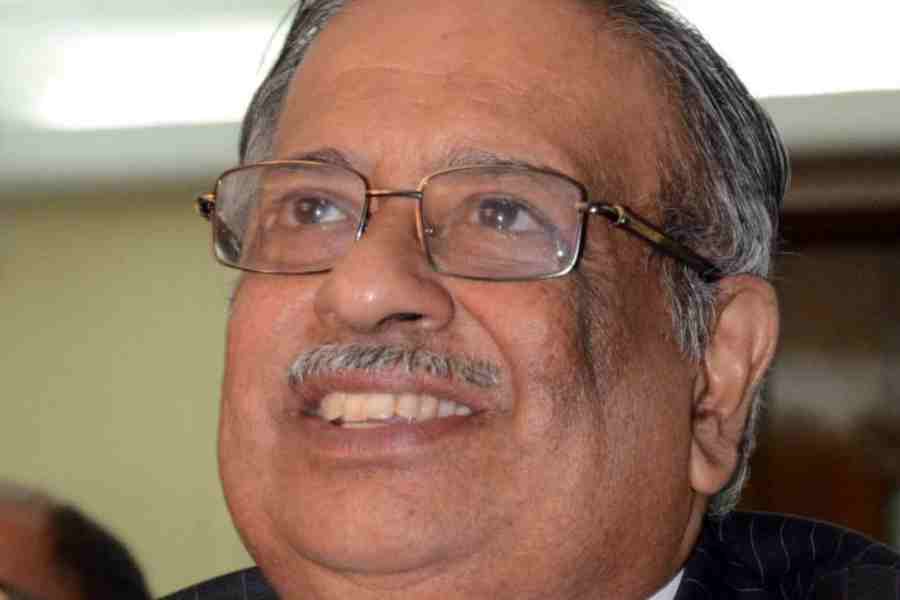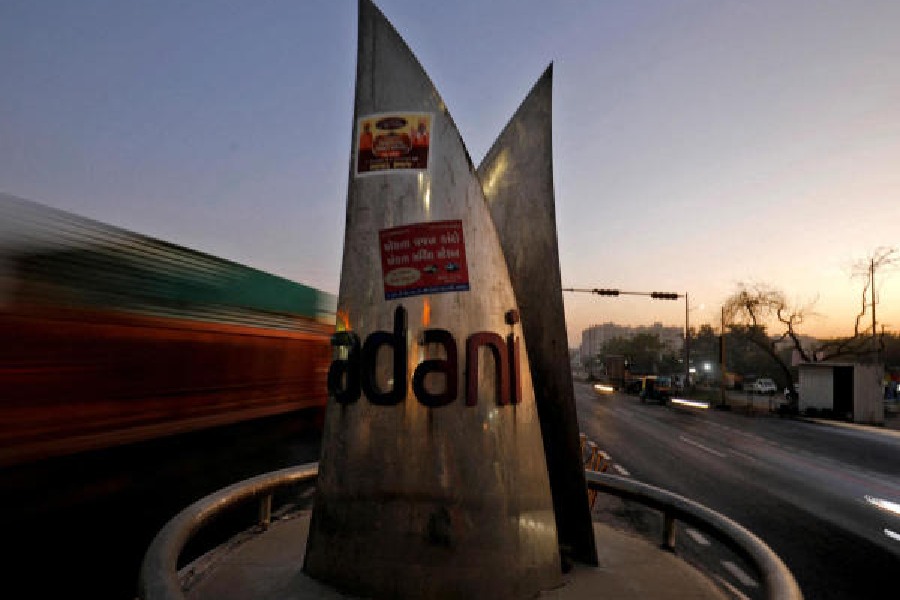Meleveetil Damodaran, the highly respected former chairman of Sebi, believes that the market regulator “cannot turn a Nelson’s eye” to the raft of allegations that have piled up against the Adani group and must carry out an honest and diligent investigation to establish whether regulations have been flagrantly violated.
Damodaran, who improved corporate governance practices in the country’s securities market when he headed the market regulator from early 2005 to February 2008, said the latest set of revelations by the Financial Times in its August 31 report called for a quick and thorough investigation.
The Financial Times report, based on the documents that the Organised Crime and Corruption Reporting Project (OCCRP) had shared with the newspaper, had lifted the veil that masked the identities of two Asian businessmen who had allegedly acted as frontmen for the group by funnelling money into four group companies through offshore funds and, thereby, manipulated stock prices.
The OCCRP is a worldwide network of investigative journalists. The documents that they found established a tortuous money trail through which the two businessmen — Nasser Ali Shaban Ahli from the United Arab Emirates and Chang Chung-Ling from Taiwan — operated.
Damodaran said the FT report had been “very well compiled” and was a credit to those who put it together.
“It is a persuasive report and... not one that you can read and put aside,” the former Sebi chairman said in an interview with journalist Karan Thapar for The Wire news portal.
The Adanis had responded to the reports in the FT and The Guardian by saying: “We categorically reject these recycled allegations.”
Damodaran said in the interview: “It is possible that they (Ahli and Chang) are frontmen; possible that there were transactions in shares made by funds that went out of India, which then makes it a case of round-tripping.”
However, the former regulator struck a note of caution. “I will not say (the report) is conclusive. It raises a number of issues. At best, it can be a presumption that some of this is correct,” he added.
He said it was now the regulator’s duty to establish whether there is “proof beyond doubt or is there a preponderance of probability”.
Damodaran, a banker-turned-bureaucrat who belonged to the IAS cadre in Tripura, said the FT report deserves to be thoroughly investigated. “It shouldn’t be brushed (aside).”
The latest exposé is the first time that the identities of the shadowy persons who held stock in Adani companies have been revealed.
A report put out by the OCCRP at the same time had claimed that Ahli and Chang “spent years buying and selling Adani stock through offshore structures that obscured their involvement”. They also made considerable profits in the process.
Ahli and Chang are close associates of Vinod Adani, elder brother of the private conglomerate’s founder Gautam.
There have been reports suggesting that the fund managers in charge of Chang and Ahli’s investments in two Mauritius-based offshore funds received direct instructions on the investments from an Adani company: Excel Investment and Advisory Services Ltd, based in the UAE.
Sebi has been investigating 13 offshore entities — 12 foreign portfolio investors (FPIs) and one foreign entity — and claimed last month in its 15-page information docket on its status report that “establishing the economic interest shareholders of the 12 FPIs remains a challenge”.
The Adani group has been battling accusations that it breached market regulations that say a minimum public shareholding in a listed company should be 25 per cent at all times. This means the promoters cannot hold more than 75 per cent.
The charge against the Adani group is that it conspired with Ahli and Chang to breach the minimum public float rule.
The FT report said that in January 2017, Ahli and Chang secretly controlled at least 13 per cent of the free float in three of the Adani companies listed at the time, including the group’s flagship Adani Enterprises.
Damodaran said the regulator needs to look past the Adani group to see “whether there are systemic issues that need to be plugged to ensure minimum public shareholding (MPS). This can be used as a case in which you can examine what are the ways in which people are getting around... the minimum public shareholding of 25 per cent.”
If promoters hold more than 75 per cent, they can influence the price of the stock.
Damodaran said a lot of numbers were flying around and there were some suggestions that the promoters’ stake in the Adani companies might have topped 85 per cent. “Clearly, that is an aspect that needs to be looked into,” he added.
He claimed that the Adani group wasn’t the only one where there were suspicions of a breach of the public float rule. “Several other companies also have a similar situation. It is just not in the public domain,” Damodaran added.
The former Sebi chairman said he was confident that the market regulator would carry out a thorough, diligent investigation into the aspects raised in the FT report because its own credibility was on the line.
“I have absolutely no doubt that it (Sebi) will be diligent; it cannot afford not to be.... If it didn’t do that, every action it takes would be suspect and that is not just in relation to the Adani group,” the former regulator said.













